Ancient Adelie penguin colony revealed by snowmelt at Cape Irizar, Ross Sea, Antarctica
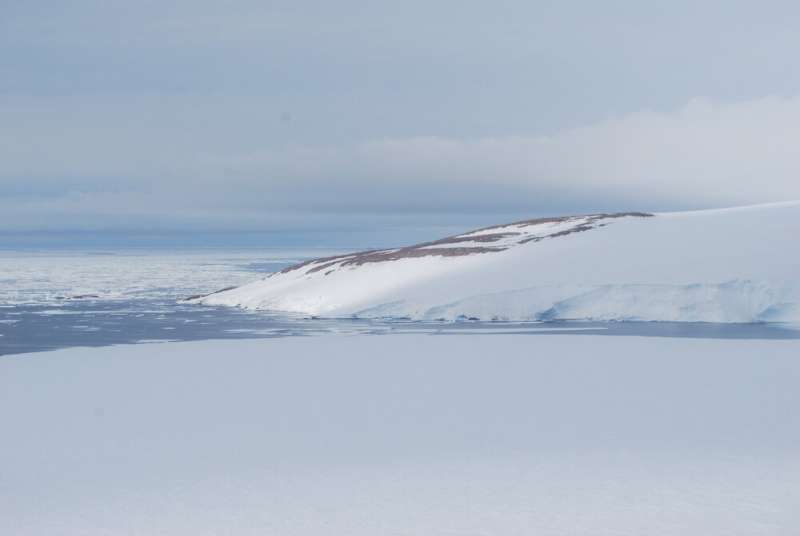
Researcher Steven Emslie encountered a puzzle at Cape Irizar, a rocky cape located just south of the Drygalski Ice Tongue on the Scott Coast, Ross Sea. He found both ancient and what appeared to be fresh remains of Adelie penguins, mostly of chicks, which frequently die and accumulate at these colonies. However, the "fresh" remains were puzzling, he says, because there are no records of an active penguin colony at this site since the first explorers (Robert Falcon Scott) in 1901-1903 came to the Ross Sea.
Emslie found abundant penguin chick bones scattered on the surface, along with guano stains, implying recent use of the site, but that wasn't possible, says Emslie. Some of the bones were complete chick carcasses with feathers, now falling apart from decay as at a modern colony, as well as intact mummies. Emslie and his colleagues collected some of these surface remains for further analysis and radiocarbon dating to try and figure out what was going on there.
The team found old pebble mounds scattered about the cape. These mounds are former nesting sites of Adélie penguins because they use pebbles to build their nests. When they abandon a site, the pebbles become scattered and stand out on the landscape, since they are all about the same size.
"We excavated into three of these mounds, using methods similar to archaeologists, to recover preserved tissues of penguin bone, feather, and eggshell, as well as hard parts of prey from the guano (fish bones, otoliths). The soil was very dry and dusty, just as I've found at other very old sites I've worked on in the Ross Sea, and also had abundant penguin remains in them. Overall, our sampling recovered a mixture of old and what appeared to be recent penguin remains implying multiple periods of occupation and abandonment of this cape over thousands of years. In all the years I have been doing this research in Antarctica, I've never seen a site quite like this."
-
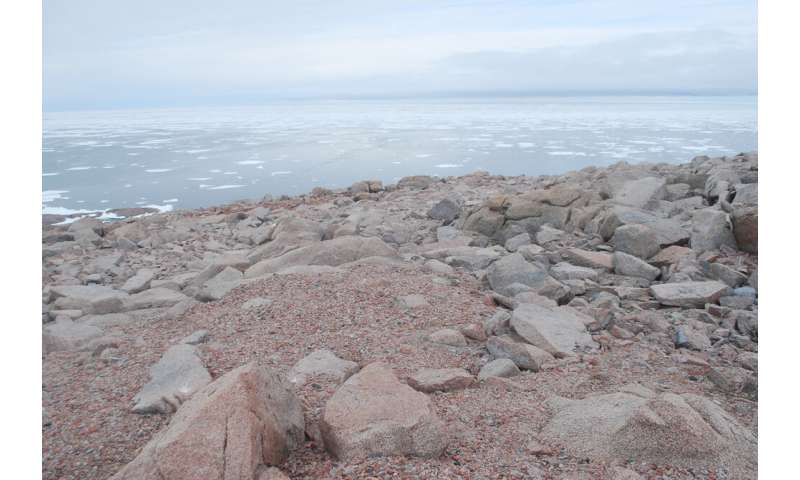
Abandoned colony, Cape Irizar. Credit: Steven Emslie -
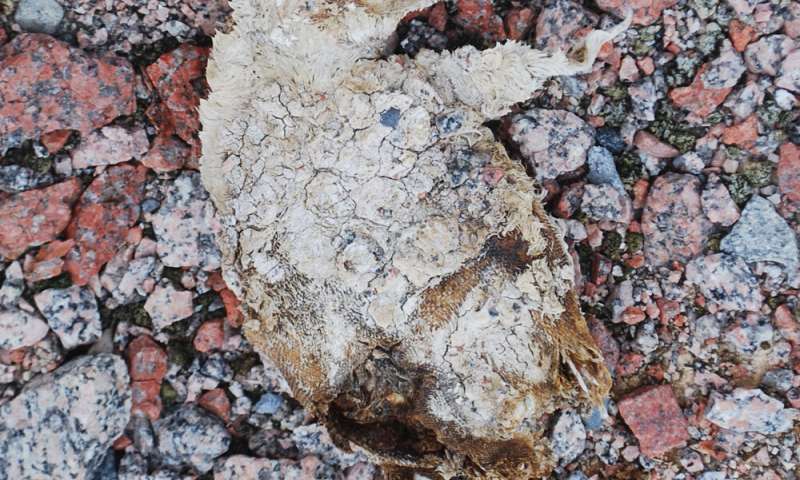
800-year-old penguine mummy. Credit: Steven Emslie
The analyses reported in Emslie's recent paper published in Geology indicate at least three occupation periods of the cape by breeding penguins, with the last one ending at about 800 years ago. When that occupation ended, either due to increasing snow cover over the cape or other factors (the Little Ice Age was beginning about then too), the "fresh" remains on the surface were covered in snow and ice and preserved intact until recent exposure from snowmelt.
-
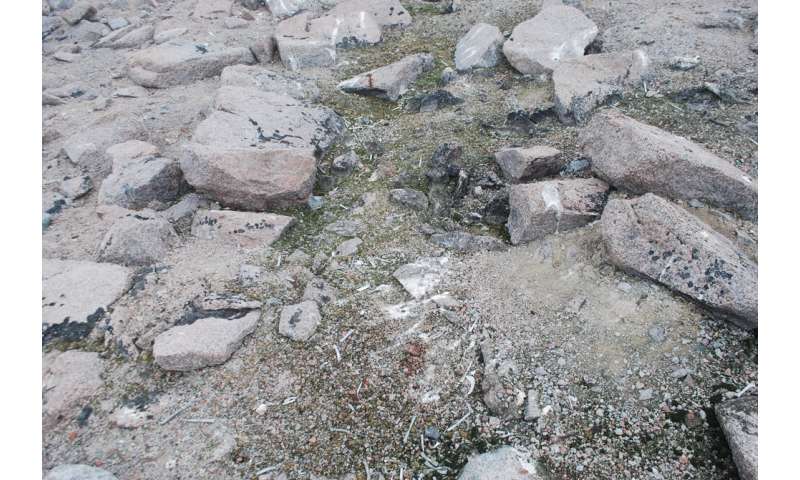
Penguin bones and guano. Credit: Steven Emslie -
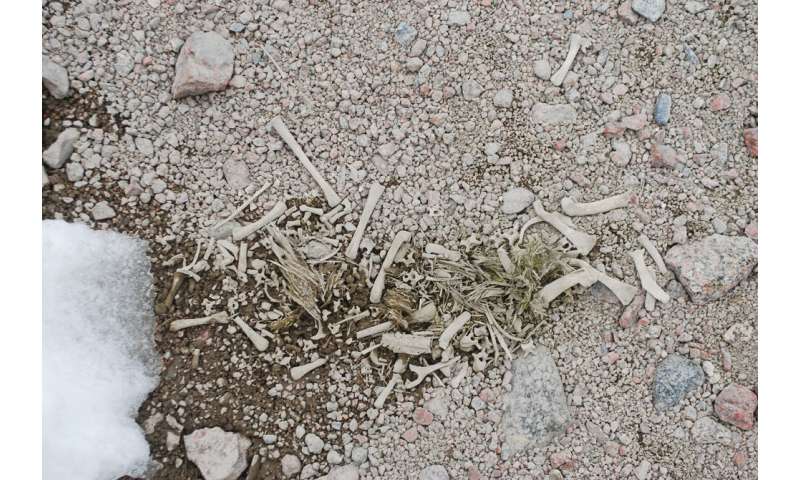
Ancient bones on the surface. Credit: Steven Emslie
Global warming has increased the annual temperature in the Ross Sea by 1.5-2.0 °C since the 1980s, and satellite imagery over the past decade shows the cape gradually emerging from under the snow. Thus, says Emslie, "This recent snowmelt revealing long-preserved remains that were frozen and buried until now is the best explanation for the jumble of penguin remains of different ages that we found there."
More information: Steven D. Emslie, Ancient Adélie penguin colony revealed by snowmelt at Cape Irizar, Ross Sea, Antarctica, Geology (2020). DOI: 10.1130/G48230.1
Journal information: Geology
Provided by Geological Society of America





















